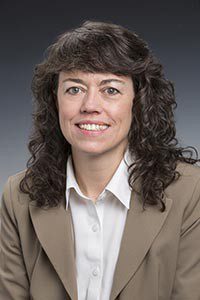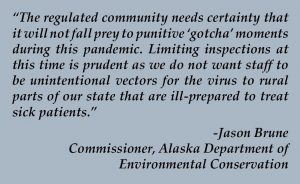
By Donna Schantz
Executive Director
In March, the U.S. Environmental Protection Agency issued a temporary policy on how to handle enforcement and compliance during the COVID-19 pandemic. An April letter clarified that the policy was not intended to absolve companies of responsibility, but to allow flexibility for regulators to adapt to the unique situations presented by the pandemic.
The EPA published remarks from public officials and stakeholders in support of the temporary policy, including remarks from Jason Brune, the commissioner of the Alaska Department of Environmental Conservation, or ADEC. The commissioner’s remarks are concerning, especially the reference to regulatory bodies, including ADEC and other state and federal agencies, seeking out “gotcha” moments in the course of their duty to enforce safety requirements.
In an April 24 letter to ADEC, the Council requested a commitment that all reasonable actions to prevent accidents from occurring would be taken. The Council also requested that any temporary policies such as this one be lifted as soon as the emergency declaration has ended.
Inspections are not ‘gotcha’ moments
The Council does not believe that regulatory oversight, including monitoring, inspecting, and reporting on industry operations, are punitive ‘gotcha’ moments. We also do not think that regulatory bodies seek to unnecessarily penalize industry during normal circumstances, let alone during an emergency such as the COVID-19 pandemic.

